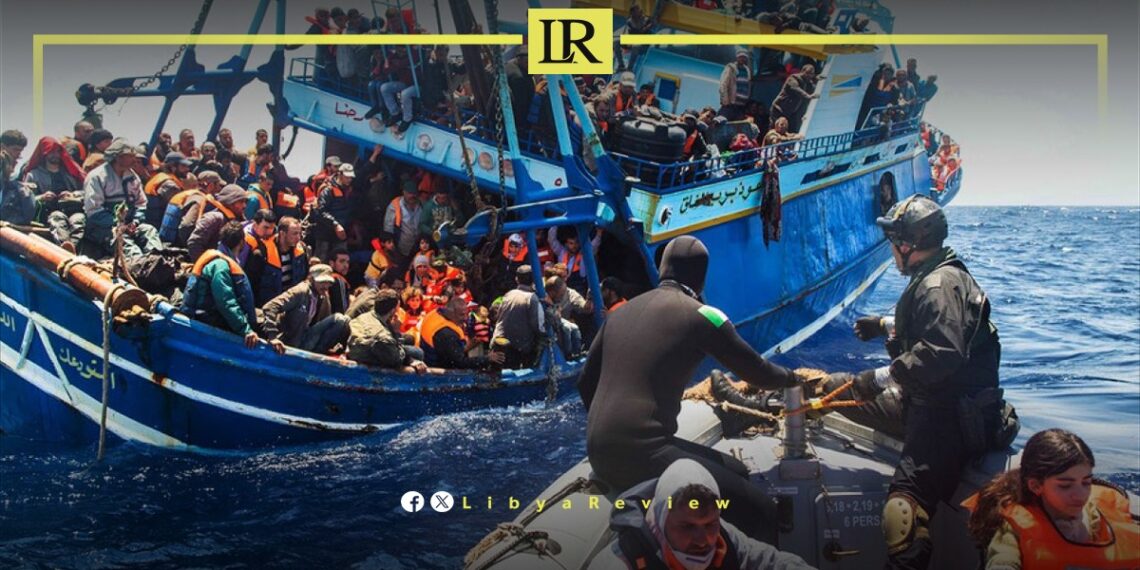The International Organization for Migration (IOM) in Libya announced that 681 migrants were intercepted and returned to Libya within a week. From 9 to 15 June 2024, 681 individuals attempting to cross the Mediterranean were stopped and brought back to Libya.
The IOM reported that in 2024 so far, 7,781 migrants have been intercepted and returned to Libya. Tragically, 312 migrants have died, and 532 are missing. The breakdown of those intercepted includes 6,869 men, 519 women, 257 children, and 136 migrants whose gender data is unavailable.
In comparison, during the whole of 2023, 17,190 migrants were intercepted and returned to Libya. That year saw 962 deaths and 1,536 missing migrants. The year 2022 recorded 4,684 migrants intercepted and returned, with 529 deaths and 848 missing.
The IOM stressed the ongoing challenges and dangers faced by migrants attempting to cross the Mediterranean. It added that the figures highlight the urgent need for comprehensive solutions to address migration and ensure the safety and rights of those involved.
The organization pointed out the critical importance of international cooperation and support to manage migration effectively. It concluded that enhanced measures are needed to protect vulnerable migrants and prevent further loss of life.
Libya’s strategic location has made it a major departure point, but the country’s political instability and ongoing conflict have led to severe human rights abuses against migrants. Detainees in Libyan centers frequently face overcrowding, lack of medical care, and abuse. Human rights organizations have repeatedly called for an end to these practices and to establish safer migration pathways.
The international community has faced criticism for its handling of the migration crisis. European Union (EU) policies, involving cooperation with the Libyan Coast Guard to intercept and return migrants, have been particularly contentious. Humanitarian organizations argue that these policies contribute to the cycle of abuse and exploitation.
The IOM and other international bodies are advocating for increased support to improve conditions in Libya and for the establishment of legal and safe routes for migrants and refugees. The organization calls for enhanced search and rescue operations and stresses the importance of addressing the root causes of migration, including conflict and poverty in the migrants’ countries of origin.


